The output should be as exactly shown in the sample output below (refer to question).
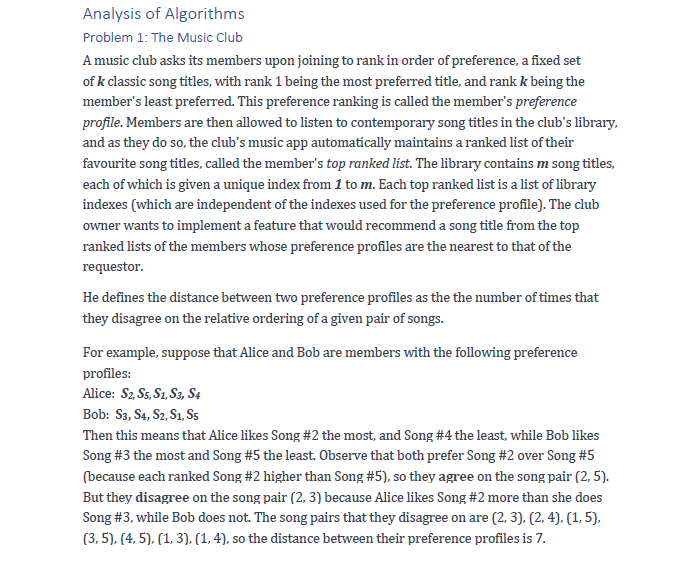
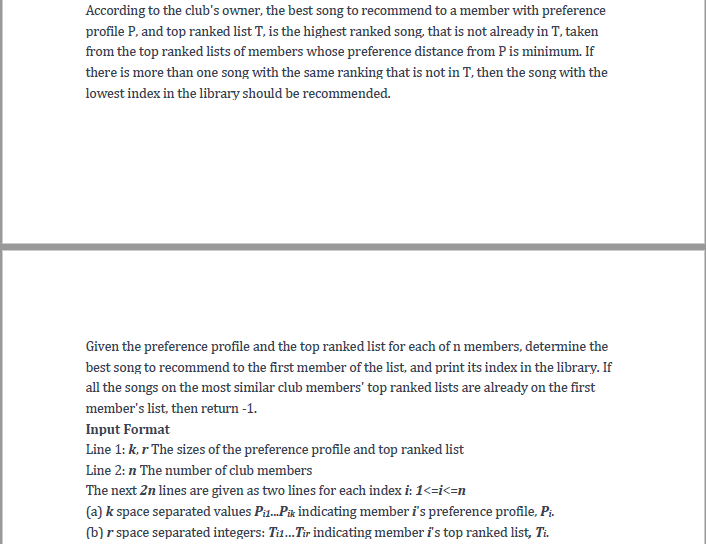
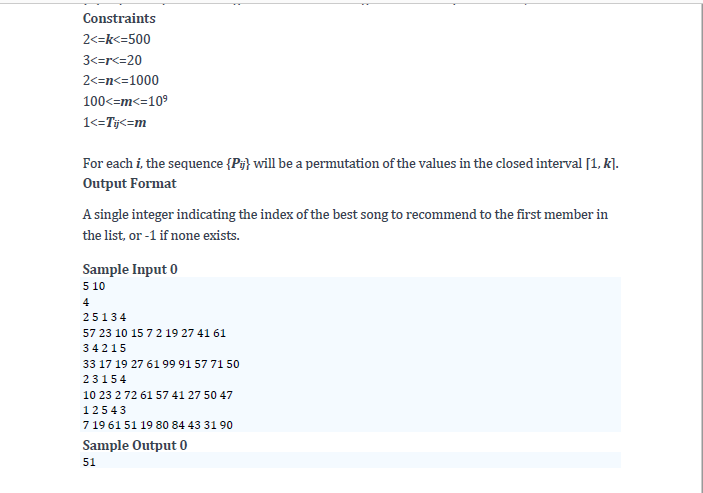
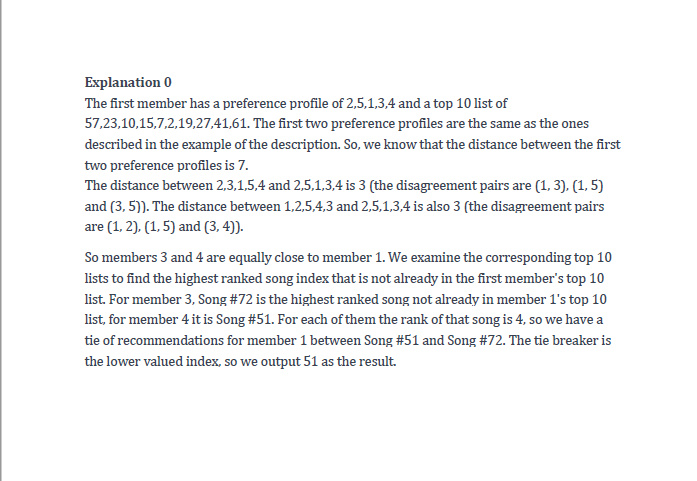
HINT BELOW
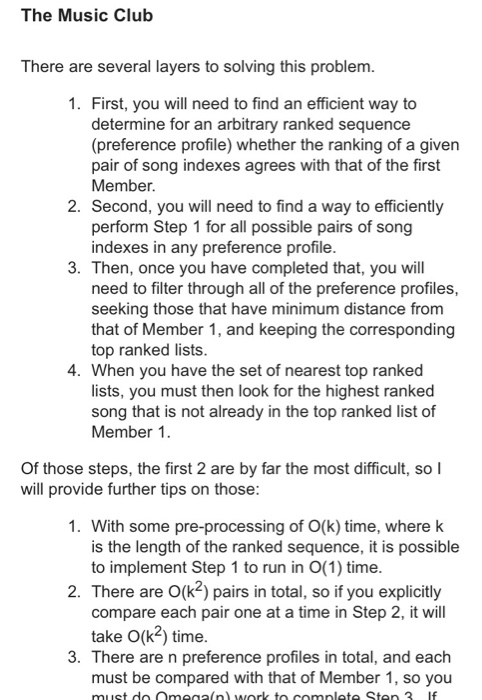
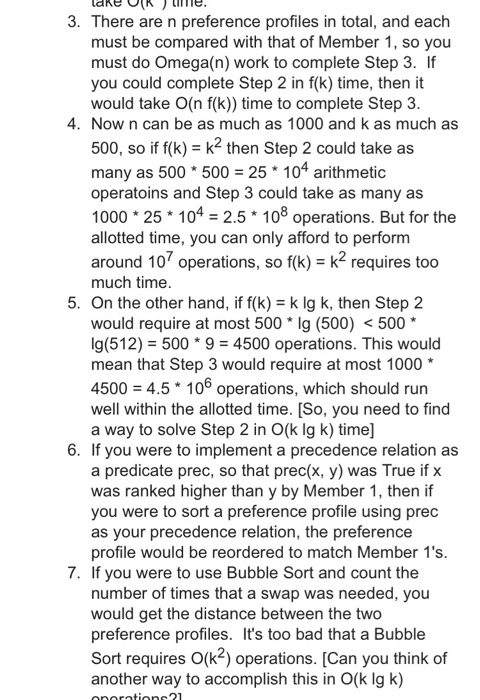
Analysis of Algorithms Problem 1: The Music Club A music club asks its members upon joining to rank in order of preference, a fixed set of k classic song titles, with rank 1 being the most preferred title, and rank k being the member's least preferred. This preference ranking is called the member's preference profile. Members are then allowed to listen to contemporary song titles in the club's library, and as they do so, the club's music app automatically maintains a ranked list of their favourite song titles, called the member's top ranked list. The library contains m song titles, each of which is given a unique index from 1 to m. Each top ranked list is a list of library indexes (which are independent of the indexes used for the preference profile). The club owner wants to implement a feature that would recommend a song title from the top ranked lists of the members whose preference profiles are the nearest to that of the requestor He defines the distance between two preference profiles as the the number of times that they disagree on the relative ordering of a given pair of songs. For example, suppose that Alice and Bob are members with the following preference profiles: Alice: S2, S5, S1,S3, S4 Bob: S3, S4, S2, S1.Ss Then this means that Alice likes Song #2 the most, and Song #4 the least, while Bob likes Song #3 the most and Song #5 the least. Observe that both prefer Song #2 over Song #5 (because each ranked Song #2 higher than Song #5), so they agree on the song pair (25). But they disagree on the song pair (2.3) because Alice likes Song #2 more than she does Song #3, while Bob does not. The song pairs that they disagree on are (2.3). (2.4). (15), (3, 5), (4, 5), (1, 3), (1, 4), so the distance between their preference profiles is 7 Analysis of Algorithms Problem 1: The Music Club A music club asks its members upon joining to rank in order of preference, a fixed set of k classic song titles, with rank 1 being the most preferred title, and rank k being the member's least preferred. This preference ranking is called the member's preference profile. Members are then allowed to listen to contemporary song titles in the club's library, and as they do so, the club's music app automatically maintains a ranked list of their favourite song titles, called the member's top ranked list. The library contains m song titles, each of which is given a unique index from 1 to m. Each top ranked list is a list of library indexes (which are independent of the indexes used for the preference profile). The club owner wants to implement a feature that would recommend a song title from the top ranked lists of the members whose preference profiles are the nearest to that of the requestor He defines the distance between two preference profiles as the the number of times that they disagree on the relative ordering of a given pair of songs. For example, suppose that Alice and Bob are members with the following preference profiles: Alice: S2, S5, S1,S3, S4 Bob: S3, S4, S2, S1.Ss Then this means that Alice likes Song #2 the most, and Song #4 the least, while Bob likes Song #3 the most and Song #5 the least. Observe that both prefer Song #2 over Song #5 (because each ranked Song #2 higher than Song #5), so they agree on the song pair (25). But they disagree on the song pair (2.3) because Alice likes Song #2 more than she does Song #3, while Bob does not. The song pairs that they disagree on are (2.3). (2.4). (15), (3, 5), (4, 5), (1, 3), (1, 4), so the distance between their preference profiles is 7












